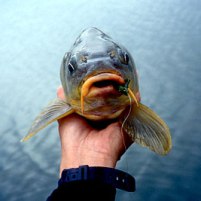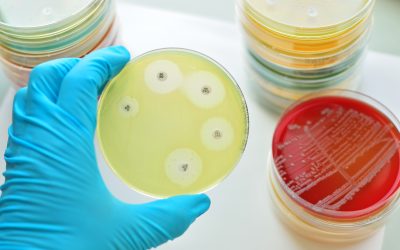Researchers select genes for resistant carp

Carp is mainly farmed in Eastern Europe. However, carp farmed in semi-intensive ponds, are prey to a range of viruses, bacteria and parasites. The Polish Institute of Ichthyobiology and Aquaculture in Golysz and 2 PhD students from Wageningen University looked for genetic selection methods for obtaining resistant carp.
genes, DAB 1 and DAB 3, which control the fish’s immune system. He found that
the DAB 1 group appeared to contain the most genetic variety, which is a
condition for successful genetic selection. And he also found a clear relation
between certain DAB 1 genotypes and the carp’s resistance to diseases, which
makes DAB 1 an excellent marker for future breeding programmes for this fish
breed.
Rakus’s compatriot Patrycia Jurecka looked for genetic variation
in carp to raise their resistance to the blood parasite Trypanoplasma
borrel. This parasite competes with the carp for iron. The transport protein
transferrin, which provides the fish’s cells with iron, plays a key role in
this. Jurecka found four different gene combinations for transferrin. Type D of
this protein seemed the most vulnerable to the parasite, which led to a high
concentration of parasites in the carp’s blood. Jurecka has not yet found the
ultimate marker for optimal immunity to the blood parasite, but her research
does lay the foundations for the Polish institute to build on in breeding
resistant carp.
Co-supervisor Geert Wiegertjes of the Cell Biology and Immunology chair
group is interested in more than sustainable
carp farming. ‘For us the carp is a sort of guinea pig for studying fish immune
systems. The knowledge gained will now be applied to the popular zebra fish,
whose immune system is very like the carp’s.’
Related
folder:
Dossier AllAbout Aquafeed











